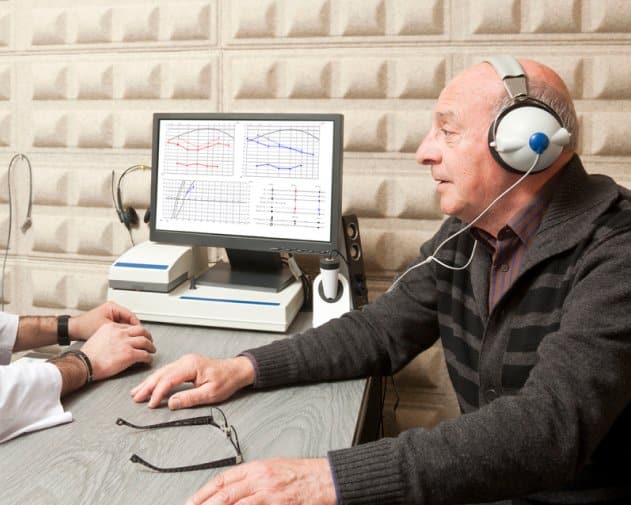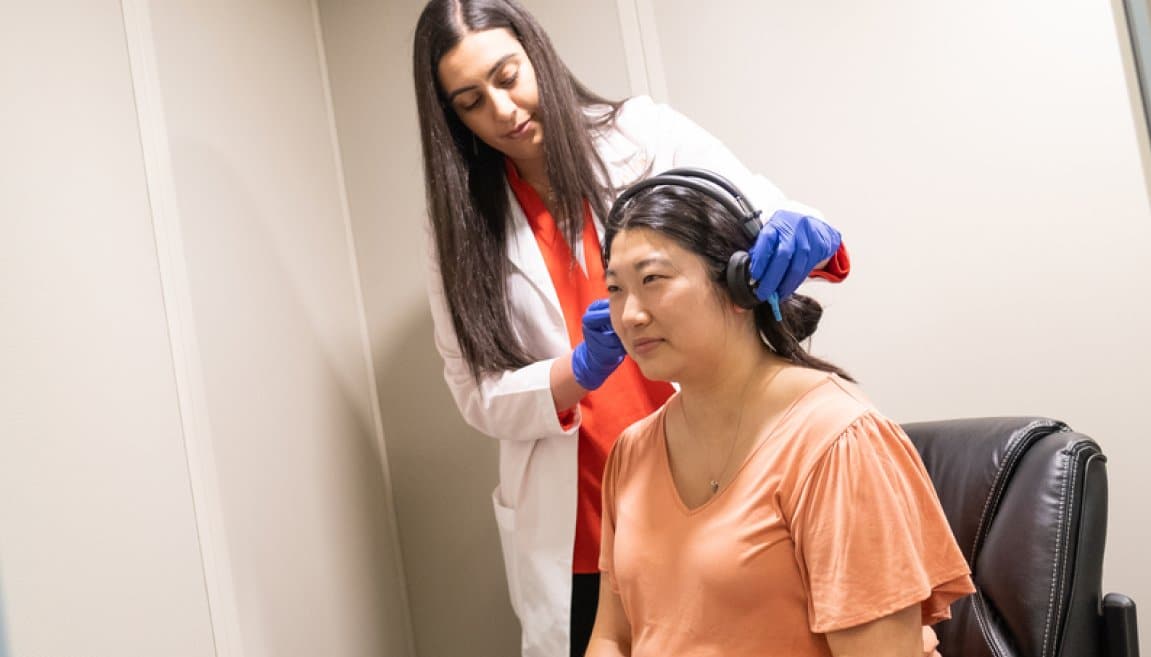
How is hearing loss diagnosed?
In order to diagnose hearing loss, your audiologist will review your medical history, discuss your symptoms, physically examine your ears and complete a hearing evaluation consisting of a series of audiological tests. A hearing exam may involve one or more of the following:
- Pure Tone Testing
- Bone Conductive Testing
- Speech Testing (In quiet and noise)
- Typanometry
- Acoustic Reflex Testing
- Auditory Brainstem Response (ABR)
- Otoacoustic Emissions (OAEs)
Types of hearing loss
Treatment will depend on your type and degree of hearing loss.
There are three types:
- Sensorineural hearing loss is the most common type of hearing loss. It involves a problem with the inner ear. Sensorineural hearing loss is usually treated with hearing aids.
- Conductive hearing loss occurs when there are problems in the outer ear, ear canal, eardrum or middle ear. Conductive hearing loss is often correctable with surgery or medications (typically antibiotics). Alternatively, it may be treated with hearing aids.
- Mixed hearing loss is a combination of both types. Treatment might involve a combination of medication, surgery and/or hearing aids.


Benefits of treating hearing loss
Individuals who seek treatment for their hearing loss see improvements in all aspects of their lives.
Researchers agree that treating your hearing loss can lead to better overall health, professional success and emotional well-being.
Test Your Hearing
The University of the Pacific offers a convenient online hearing screener, a quick tool to assess your hearing capabilities in just a few minutes from the comfort of your home. This screener asks questions about your hearing experiences in various situations and requires headphones for a hearing check involving different tones. Results provide a preliminary understanding of your hearing, indicating whether further evaluation might be necessary.
For a detailed assessment, the University’s audiology department conducts comprehensive in-office evaluations to accurately diagnose and create personalized treatment plans.
Regular hearing screenings are recommended for early detection and management of hearing issues, contributing to overall well-being and quality of life.
– OR –
fill out our form below, and schedule your detailed hearing assessment today!

